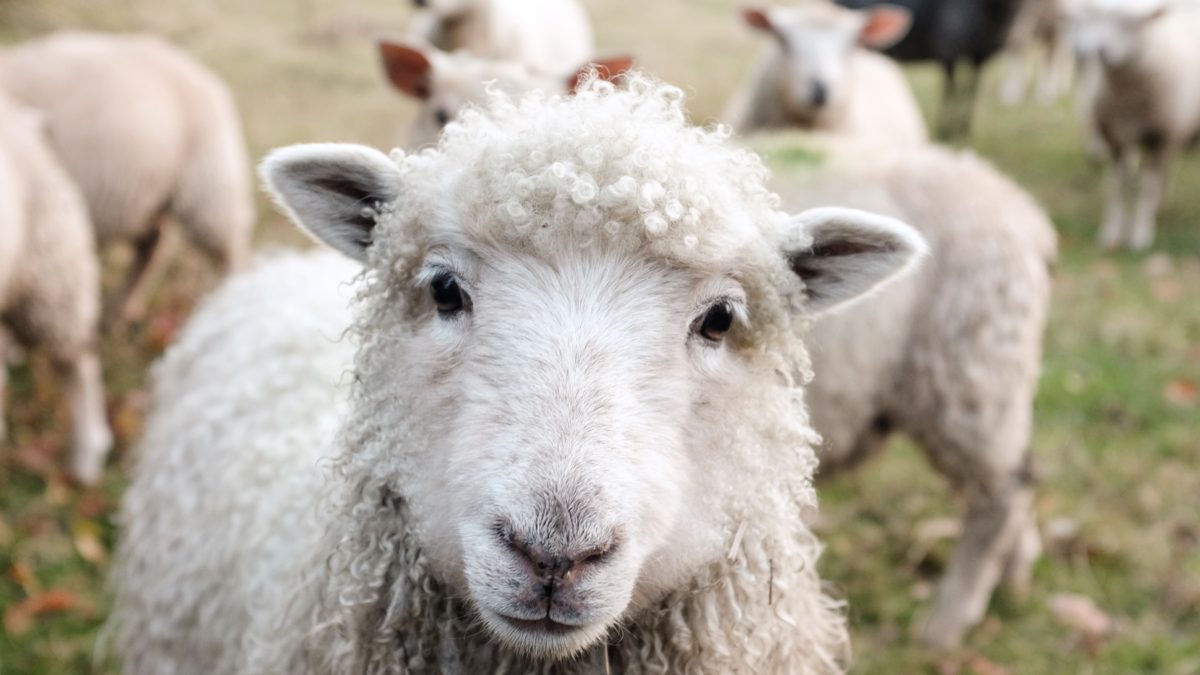MORE ABOUT FARMS: LIVESTOCK AND PETS
We have already talked in our blog about new products for agriculture and the urgent need for safer and friendlier biopesticides for us all. But what about livestock and pets? Does a similar scenario apply to intensive livestock management? May we maintain productivity increasing product safety and friendlier practices? What are the effects of current human pressure to the environment on animal health?
Parasites migrating North
As ice melts and temperatures slowly rise, pathogens from the temperate regions seem to be moving up North. Recent studies have pointed out, for instance, potential Toxoplasma gondii in hunter-harvested beluga whales in North Canada, although these results need to be confirmed. Moreover, infections of the parasite Angiostrongylus vasorum (previously confined to mainland Europe) in mollusks and foxes have been confirmed in Scotland. While in 2005-6 no infections were found in foxes in North England and Scotland, by 2015 7% of tested foxes were infected in Scotland, and 50 % in southeast England. In recent years, dog infections by A. vasorum have been indeed reported in countries such as Sweeden, Germany and the US.
Another example are Borrelia sp., responsible for Lyme disease. As temperature rises, organisms directly associated with the parasite, both tick and the tick’s main sources of food, tend to find new territories to expand up north. Even though no evidence of such migration have been found in North America yet, it has been confirmed for Russian Arctic where the vector for Lyme disease is more tolerant to colder temperatures. Moreover, Lyme disease cases in pets have increased five times in the United Kingdom in the last ten years.
Solid evidence of northward shifting has been found for another tick-mediated disease in Russia, tick-borne encephalitis. Cases of this disease are increasing in northwest Russia. Warmer temperatures seem to be the cause, allowing winter tick survival and longer parasite’s activity periods (spring and summer).
Uprising resistance
The use of broad spectrum antibiotic in animal feed is a very common practice, as improves production and decreases infections in livestock farms. Therefore, antibiotic resistance is a major concern for both Human and Animal Health. As resistance grows, the market is in need of new and specific antibiotics. Novel approaches towards the so needed new antibiotics are being proposed, such as the use of CRISPR for gene edition, antibiotic conjugates, bacteriophages or nanoantibiotics, to mention some.
Besides bacteria, some parasites are also susceptible to developing resistance to the current drugs. That is the case for heartworm, a common parasitic dog disease that once was believed solved through preventive monthly treatment with macrocyclic lactones. In the past decade, macrocyclic-lactone-resistant parasites have emerged in southern US.
What does the meat eat?
Consumers’ concerns about feed additives in livestock have increased exponentially in the past decade and the tendency has not peaked yet. Sustainability of livestock production and effects of antibiotics in consumers’ health, are the two main discussion topics in this field. In 2016, the Food and Agriculture Organization of the United Nations published a comprehensive analysis of the former, pointing out the indicators to be taken into account to improve animal diet sustainability in three dimensions: human, planetary and farm profit.
There are eight categories of feed additives typically used in livestock farms: antibiotics, acidifiers, antioxidants, vitamins, minerals, amino acids, binders and enzymes. Although the scientific community tends to agree with the use of antibiotics in weaned animals, its use on growing cattle seems to be shifting to alternative preventive measures, such as acidifiers, prebiotics and probiotics. We have discussed the alert that antibiotic resistance causes nowadays, but we must also take into account the possibilities of intolerance development, allergies and other adverse effects.
Market Needs
Social awareness and climate change consequences are driving the innovation approaches for the Animal Health Industry. Comprehensive traceability of food, safer pharmaceuticals, ethical management and a major focus on prevention vs. cure, are strong customer demands. In this scenario, the Animal Health Industry is in need for new products in:
- Feed supplement: safe growth promoters
- Pharmaceuticals: new specific antibiotics
- Parasiticides: nematocides and insecticides
Biomar contribution
After the great success of Biomar Libraries in the field of Agriculture, with customized screening programs, we are expanding our activities to Animal Health targets. Biomar libraries, both extract library, Aqua E, and compound library, Aqua C, are being screened in collaboration with a company leader in this sector.
In addition, our libraries are being used in novel screening projects for the discovery of new antibiotic that may be applied to the Health sector, both animal and human.
Our more than 80.000 strains could be an excellent source of new sustainable substances that may be used as growth promoters or feed additives. In this field, we have performed a successful proof of concept for the substitution of fishmeal for microalgae for aquaculture.
More info:
Dolgin, E. (2017) Nature 543 p. S54
Einstein, M. (2017) Nature 543 p.S5
Liu, Y. et al. (2018) Animal Nutrition 4 p. 113
Marquardt, R.R. & Li, S. (2018) Animal Frontiers 8, p.30
Mestel, R. & Ashour, M. (2017) Nature 543 p.S42
Sohn, E. (2017) Nature 543 p.S44
Amaya Castro Ruiz
Business Development Associate

Related Posts
Leave a Reply Cancel reply
This site uses Akismet to reduce spam. Learn how your comment data is processed.
Newsletter
Sign up to get receive all our latest novelties instantaneously.
Categories
- agriculture (1)
- Agriculture (4)
- Animal Health (3)
- april 2018 (2)
- april 2019 (1)
- archive (12)
- article (8)
- biology (1)
- Biomar (5)
- Biopesticides (1)
- bioremediation (1)
- business lines (8)
- Cosmetic Industry (2)
- Cosmetics (1)
- Current news (2)
- December 2019 (1)
- Environment (4)
- Ethics (3)
- february 2019 (1)
- February 2020 (1)
- Food Industry (2)
- Gender Equality (1)
- Genetics (2)
- History (1)
- Hitos (2)
- Human Health (2)
- Human Team (1)
- Industrial Fermentation (2)
- Innovation (5)
- january 2019 (3)
- jun 2019 (1)
- mycoremediation (1)
- News (2)
- News (2)
- november 2018 (1)
- Philosophy (12)
- Projects (8)
- Research (7)
- Screening (1)
- september 2019 (1)
- space (1)
- Sustainable Agriculture (3)
- type (10)
- Xylella Fastidiosa (1)



